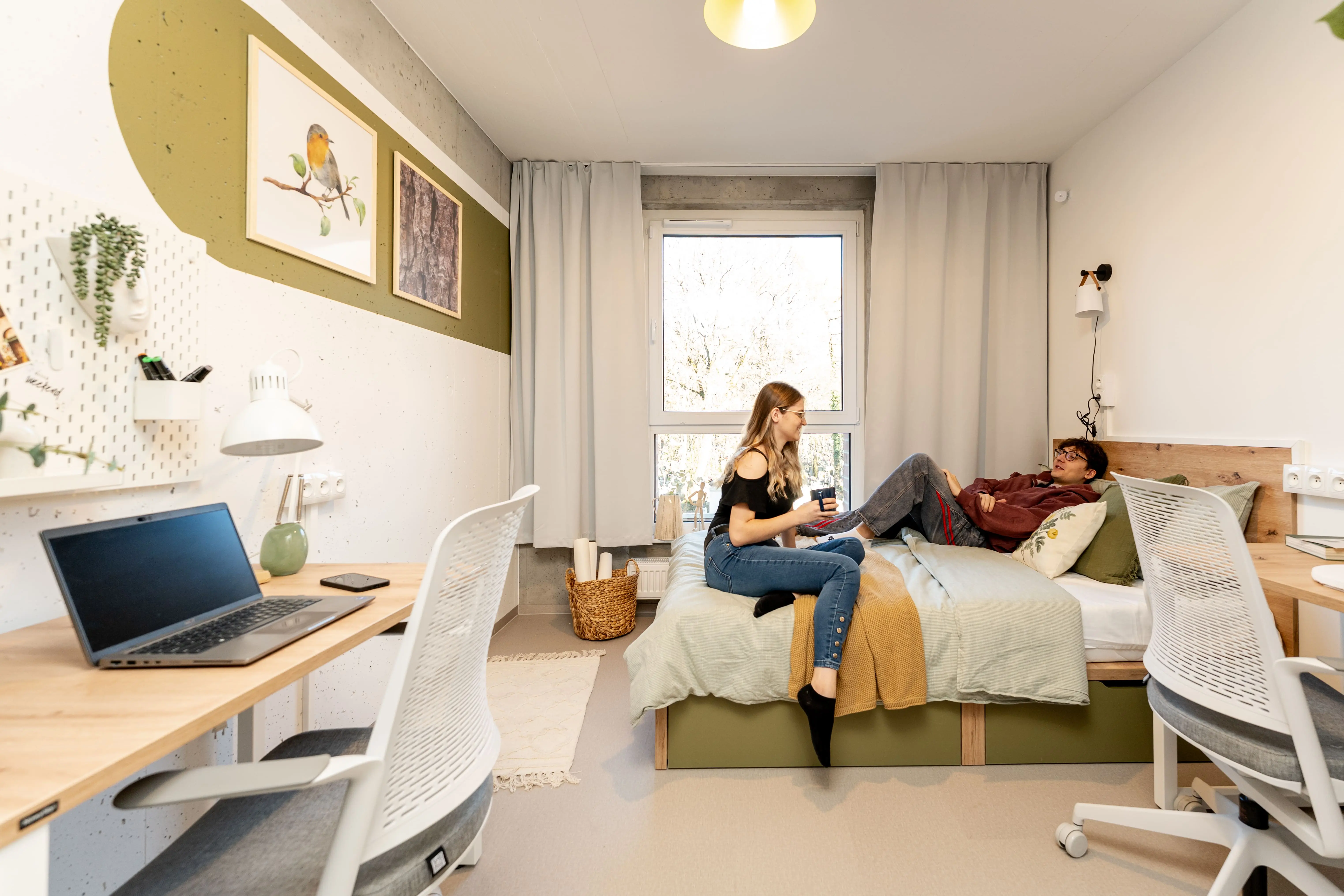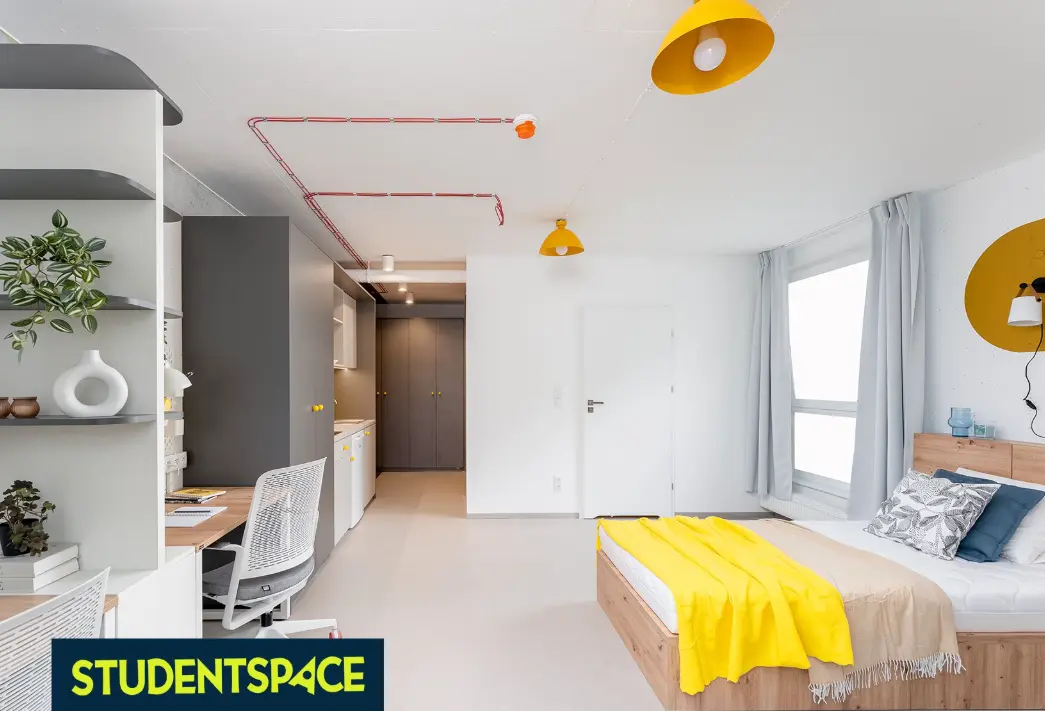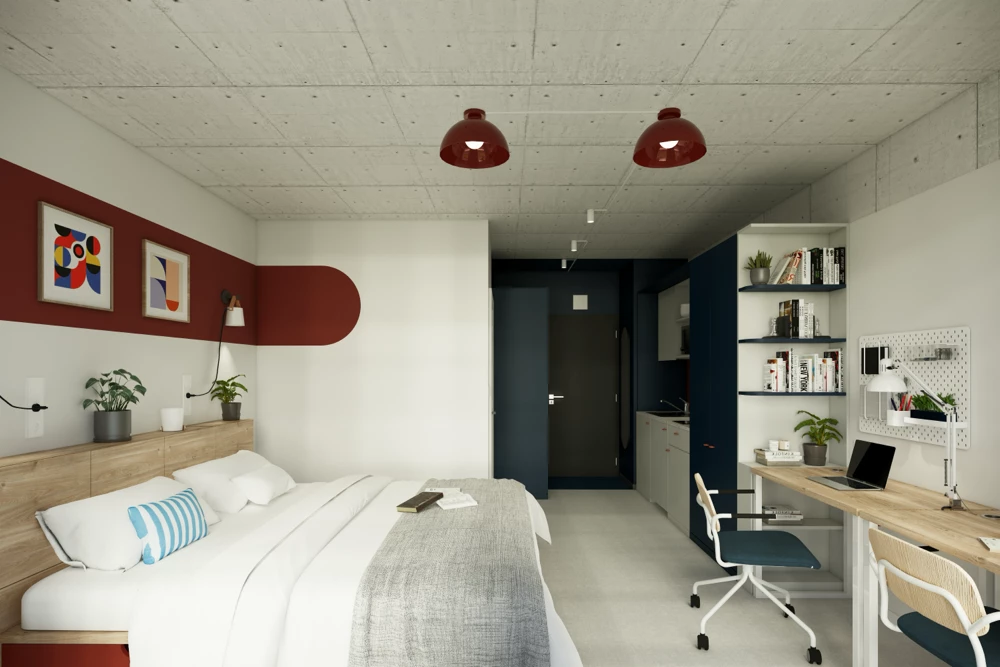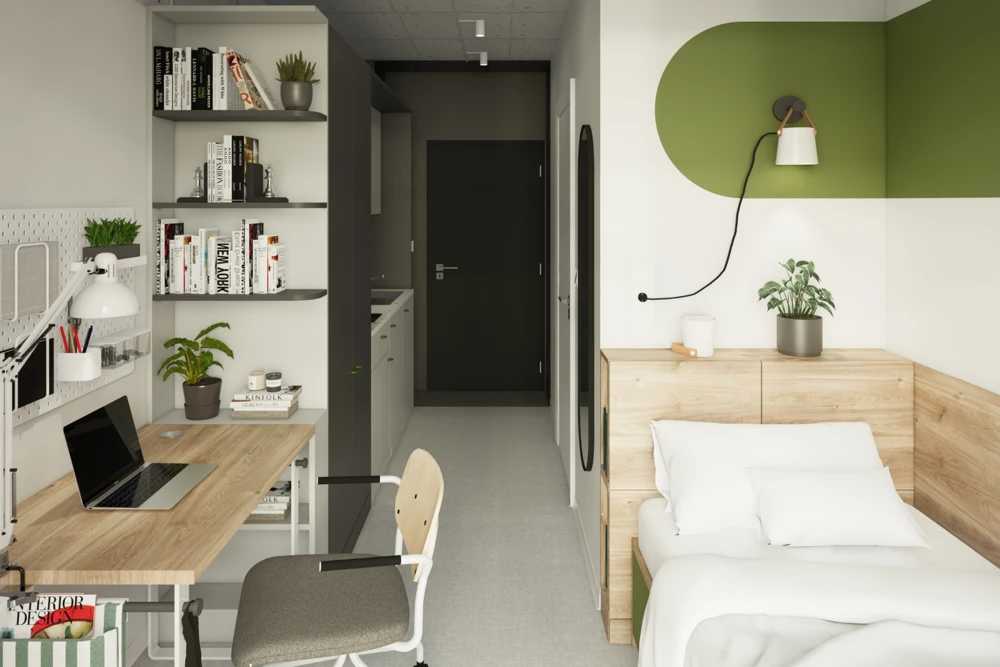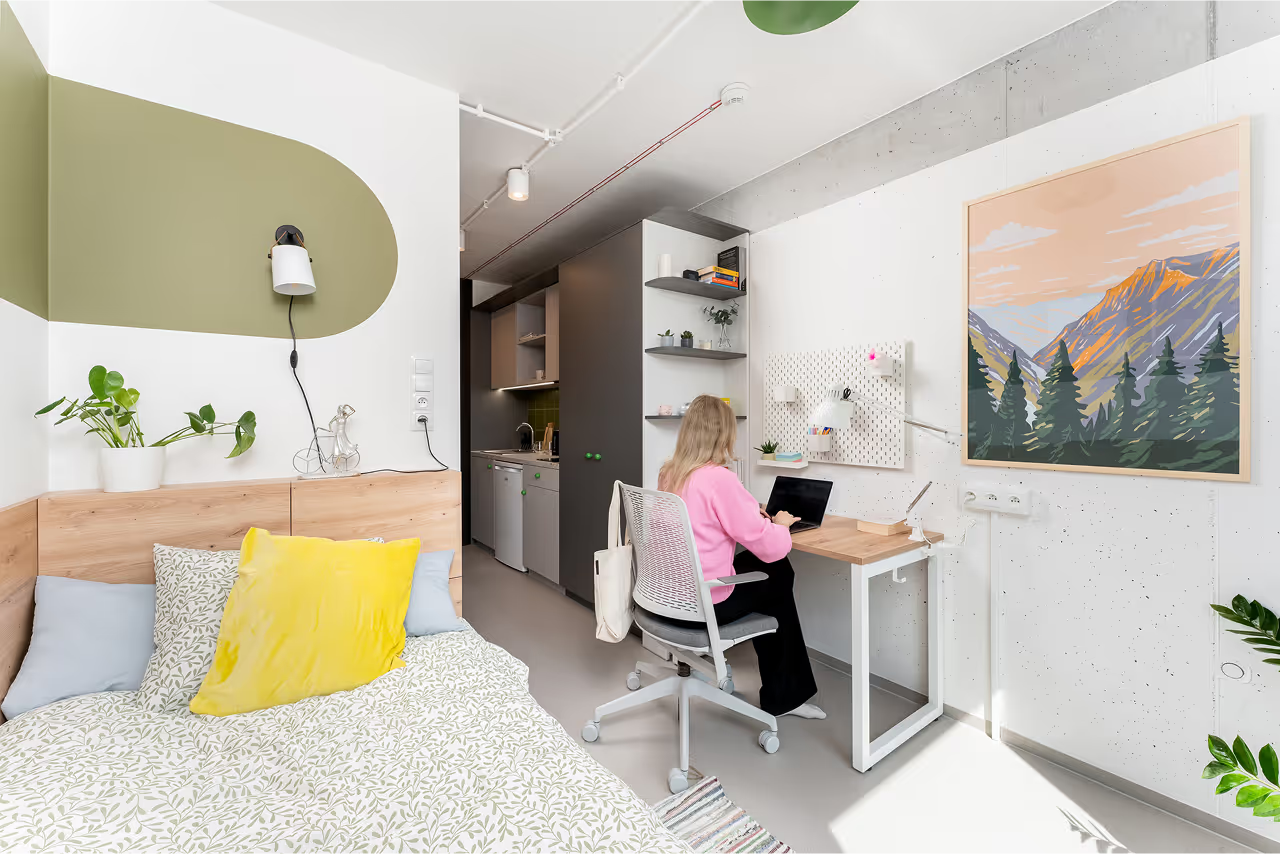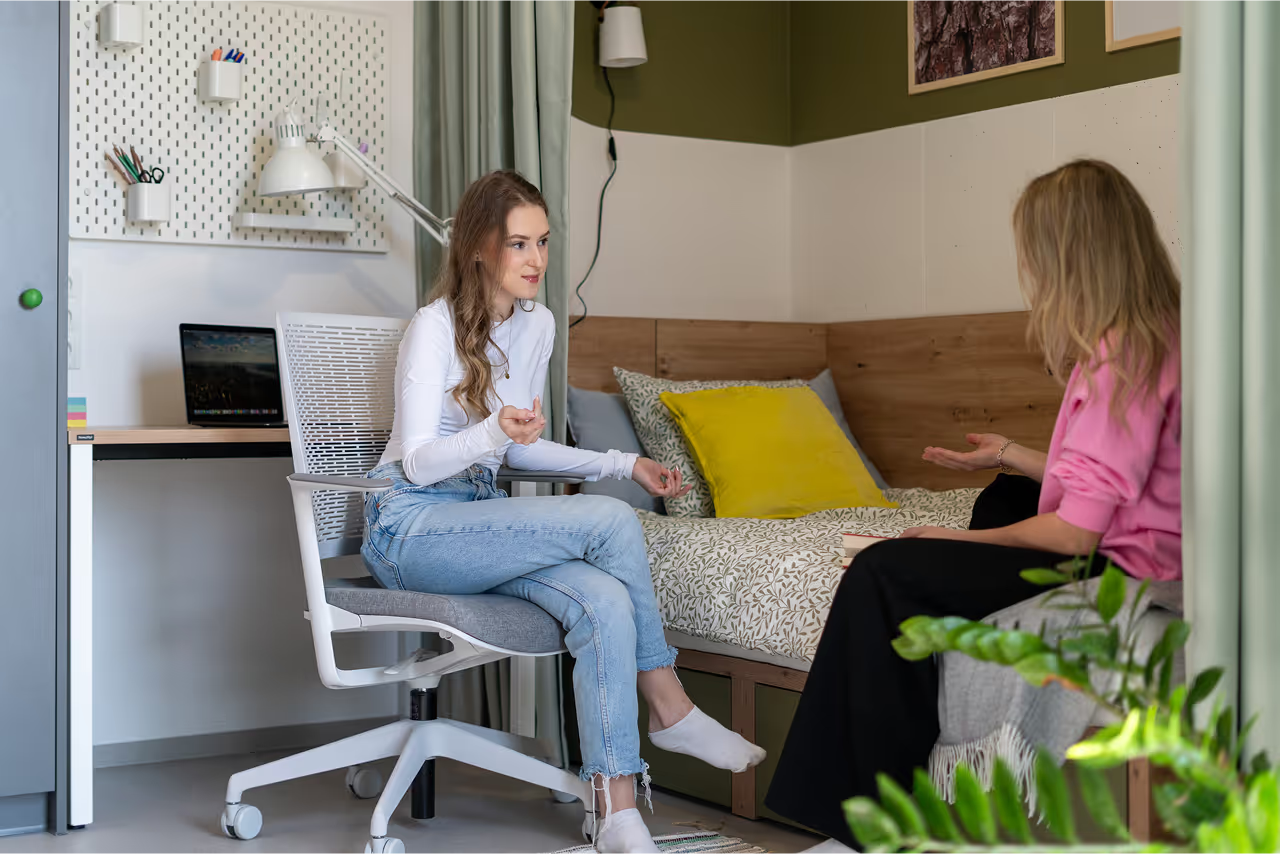
What is Erasmus+ and when can it be a good option to study?
it flagship student exchange program of the European Union that allows you to study or do an internship in another country. Such a trip usually lasts from one to two semesters. Erasmus is much more than just learning.
It is, above all, unique life experience. A chance to gain independence, immerse yourself in a completely new culture and polish your language in everyday situations. Going to Erasmus is investment in personal development and building international network of contactswhich may pay interest in the future.
Who can go on an Erasmus student exchange?
You can go for an exchange under the Erasmus+ programme every student and every student of full-time and part-time studies (part-time), as long as he meets the admission criteria of his university. Although the details may vary between universities, the basic conditions are usually very similar.
Here are the requirements that you must meet:
- Student Status: You must have completed at least your first year of undergraduate or engineering degree. This rule does not apply to master's and doctoral students who can apply as early as the first year.
- Average of ratings: Your university will almost certainly require a certain minimum average from your previous studies. It is worth taking care of the ratings from the very beginning if you are thinking about leaving.
- Knowledge of a foreign language: It is necessary to document the knowledge of the language in which you will study. Most often it is level B2, confirmed by a certificate or internal university examination.
- Passed all subjects: Before leaving, you must have a clean account, without any conditions or countless subjects from previous semesters.
- What about part-time studies? Yes, Erasmus in extracurricular studies is as possible. The recruitment process and requirements are identical to those for full-time students.
How to get on Erasmus? Your roadmap in 5 steps
The application process may seem complicated, but in fact it is very logical. It is enough to stick to the schedule and systematically go through the stages.
Step 1: Find a coordinator and check the offer at your university
It all starts at your home university. First steps point to Offices of International Cooperation or find on the website of your department the name Faculty Coordinator of the Erasmus+ Programme. This is where you will get the most important information:
- A list of partner universities you can go to.
- Detailed admission rules in force at your university.
- Deadlines for submitting documents.
Step 2: Choose your country and university
Where to go for Erasmus? When reviewing the list of available universities, consider several factors. Do not be guided only by the weather. Think about what is important to you.
- Course offerings: Check to see if you can find subjects that coincide with your field of study.
- Cost of living: Analyze whether the scholarship and your own savings are enough to live in a particular city.
- Language requirements: Make sure you meet the language criteria of your chosen university.
The most popular destinations for years are Spain, Italy and Portugal. Or are you thinking of exchanging in Central Europe? Countries such as Poland are gaining popularity. They offer a high level of education, low cost of living and vibrant academic cities such as Krakow or Warsaw.
Step 3: Prepare the necessary documents
Once you've made up your mind, it's time for the necessary bureaucracy. Completing documents is crucial, so don't skip anything. Usually the list includes:
- Application for recruitment (form available at the Erasmus office at your university).
- Cover letter in which you justify why you want to leave.
- Curriculum Vitae (CV) in an appropriate format (e.g. Europass).
- Language certificate or a certificate of language proficiency.
- Certificate of average grades from the dean's office.
Step 4: Apply and prepare for the interview
Submit a set of documents by the appointed date and wait for an invitation to an interview. It is often done in the language in which you plan to study. The recruitment committee wants to check your motivation to leave and your language skills. Expect questions about why you chose a particular country and university and what you expect from the exchange.
Step 5: You are on the list! What happens after you qualify for a trip?
Congratulations! However, this is not the end of formalities. After receiving a positive decision, you still have to complete several duties. First of all, it awaits you signing a financial agreement with the university.
Then, in collaboration with the coordinator, Prepare a Learning Agreement. This is an agreement on the program of classes, that is, a list of subjects that you will complete abroad.
At the end, you apply directly to the host university, which must formally confirm your admission.
Erasmus from the financial side - how much is the scholarship and how to plan the budget?
The Erasmus+ scholarship aims to compensate for differences in the cost of living and covering part, not all of the expenses. Its height depends on the country you are going to. Member States and programme partners are divided into groups on the basis of cost of living, which translates into specific monthly co-financing rates.
Here are sample, base scholarship rates for students leaving for the 2024/2025 academic year:
Important note: The above amounts are indicative rates. Always make sure of their current amount at the Office of International Cooperation at your university, as they may vary slightly.
It is also worth knowing that students with fewer opportunities (e.g. receiving a social scholarship or having a disability certificate) can count on additional 250 EUR per month. There is also a one-time bonus of 50 EUR for the so-called. The Green Journey (e.g. by train or bus).
Before leaving, it is necessary create a simple budget. Estimate your monthly expenses by categories: accommodation, food, public transport and entertainment. Remember that living in cities like Krakow or Warsaw are much more affordable than in Paris or Amsterdam. Careful planning of finances will allow you to avoid stress and fully enjoy the trip.
For students coming to Poland for Erasmus
If you are a student from another country and you plan to exchange in Poland, the amount of your scholarship will depend on the rates set by the National Agency of the Erasmus+ Programme in your home country.
The principle is simple: Poland is included in the group of countries with the lowest cost of living (most often Group 2 or 3 in the classification of other countries). This means that you will receive a scholarship provided specifically for this group.
To give you a concrete picture, here's Sample monthly co-financing rates for students coming to Poland from popular countries (data for the academic year 2024/2025):
- Students from Spain: A person studying in Spain, when coming to Poland, will receive a basic scholarship of 540 EUR per month.
- Students from Germany: The German National Agency (DAAD) classifies Poland in group 3, which means a scholarship of €490-540 per month.
- Students from Italy: The Italian agency (INDIRE) assigns Poland to Group 3, offering students a grant of up to €600 per month.
- Students from France: For students from France, Poland is in group 3, and the monthly scholarship is from 337 EUR, depending on the university.
What about accommodation? Practical tips for finding an apartment on Erasmus
Finding a roof over your head in a foreign city is often one of the biggest challenges. You have in front of you several standard options, each with its own set of pros and cons.
- Public dormitory: Usually the cheapest option and a good way to meet people. Unfortunately, the number of places is very limited, the standard may vary, and the application process can be very competitive.
- Renting a room or apartment (stancja): It gives a lot of independence. However, it comes with a language barrier, complicated contracts and the need to deal with the owners on their own, which can be difficult for a foreigner.
- Private dormitory: This is a solution that combines the advantages of both of the above options, eliminating their disadvantages. It offers booking certainty, a high standard and transparent policies.
Modern private dorms such as StudentSpace, provide a comprehensive solution. This option is especially convenient for female students coming from abroad. Guarantees booking certainty even before arrival, fully equipped rooms and access to international community, which facilitates acclimatization from the first day.
Are you coming back from Erasmus? Or are you just starting your adventure in Poland? We have the perfect place for you!
Returning from Erasmus is a new beginning. If, after returning to Cracow or Warsaw you are looking for a comfortable, modern place where you can continue your life in an international atmosphere, StudentSpace is for you.
Are you planning Erasmus in Poland - Krakow or Warsaw? Get a stress-free start by booking your own room at StudentSpace dorms. Enjoy a high standard and join our community of students from all over the world even before you unpack your suitcases.
Whether you're finishing one international adventure or just starting another in the heart of Poland, you need a place to call home. Check out the offer of modern rooms in StudentSpace dormitories in Krakow and Warsaw. Reserve your spot today and focus on what matters most — gaining invaluable experiences!
Explore more tips and insights for students
Book your space in a private student dorm close to your university.


We are waiting for you
at StudentSpace
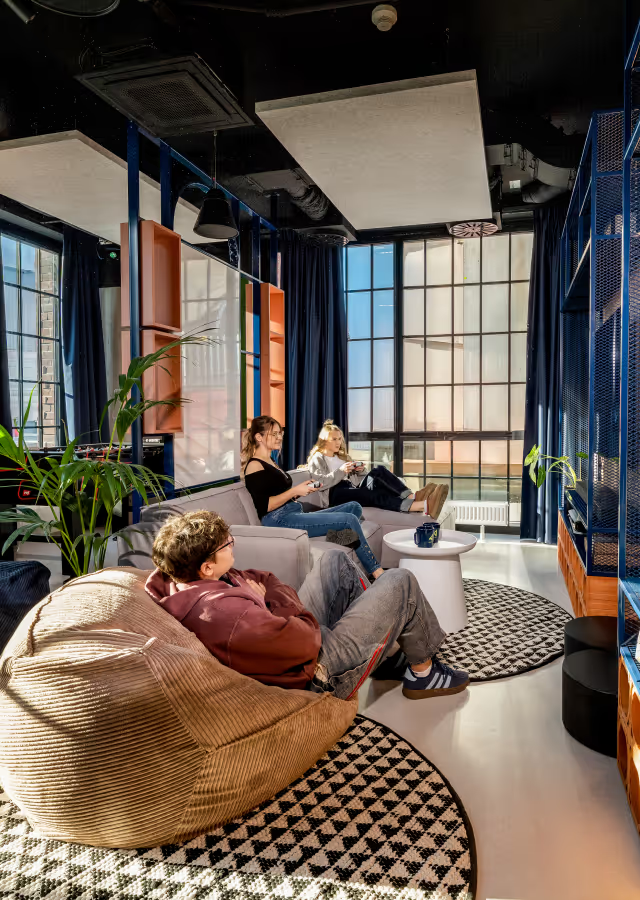







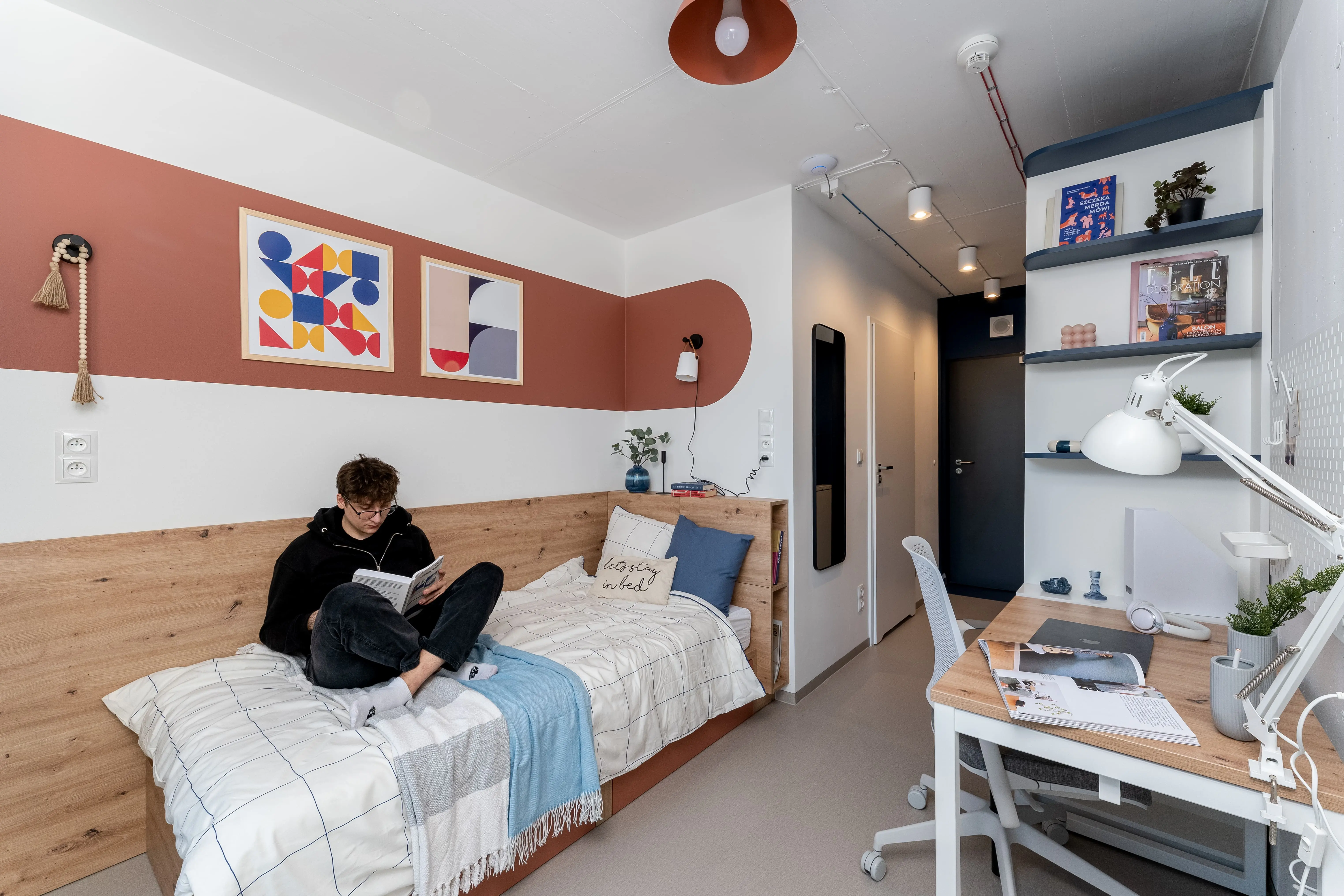


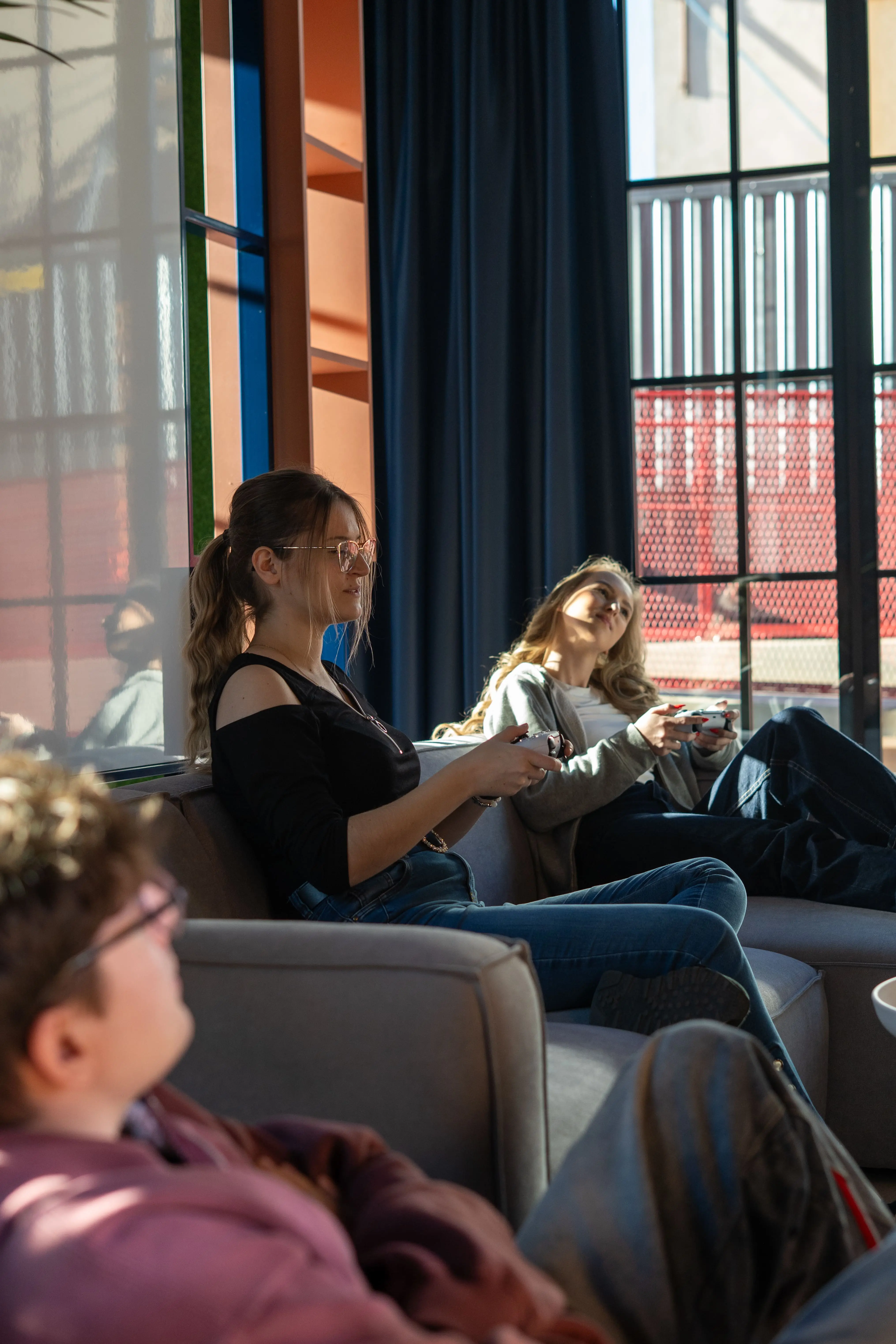
.webp)
